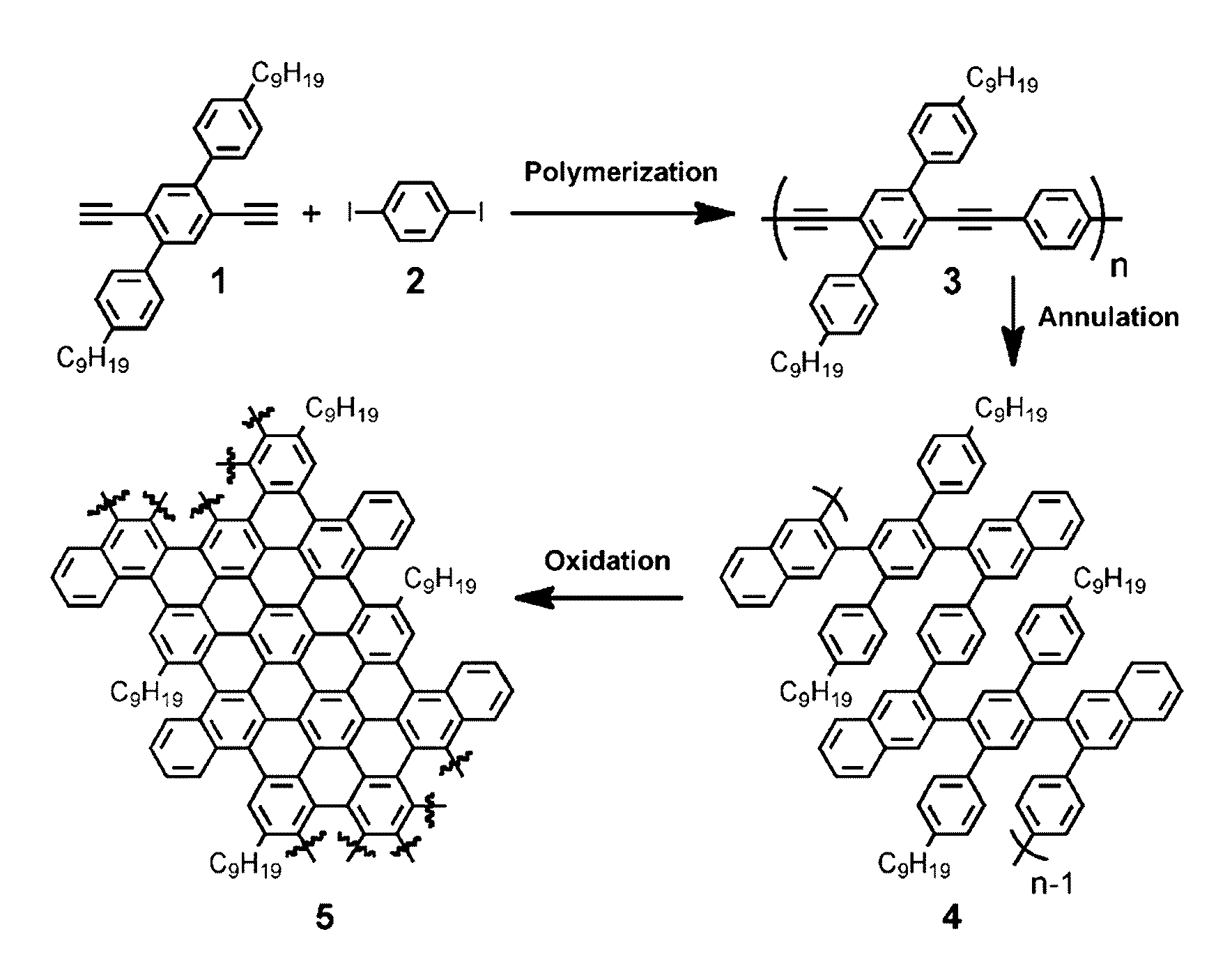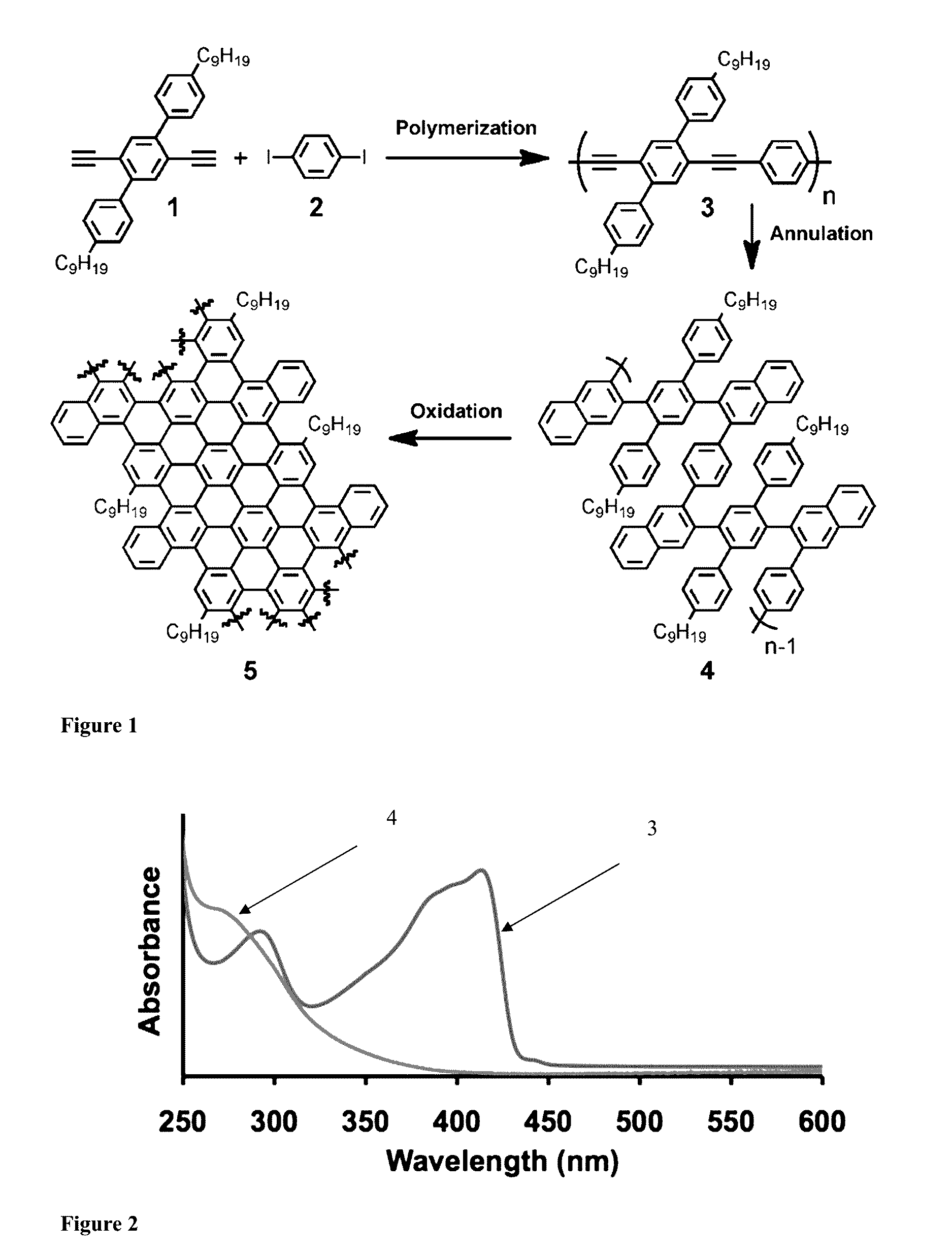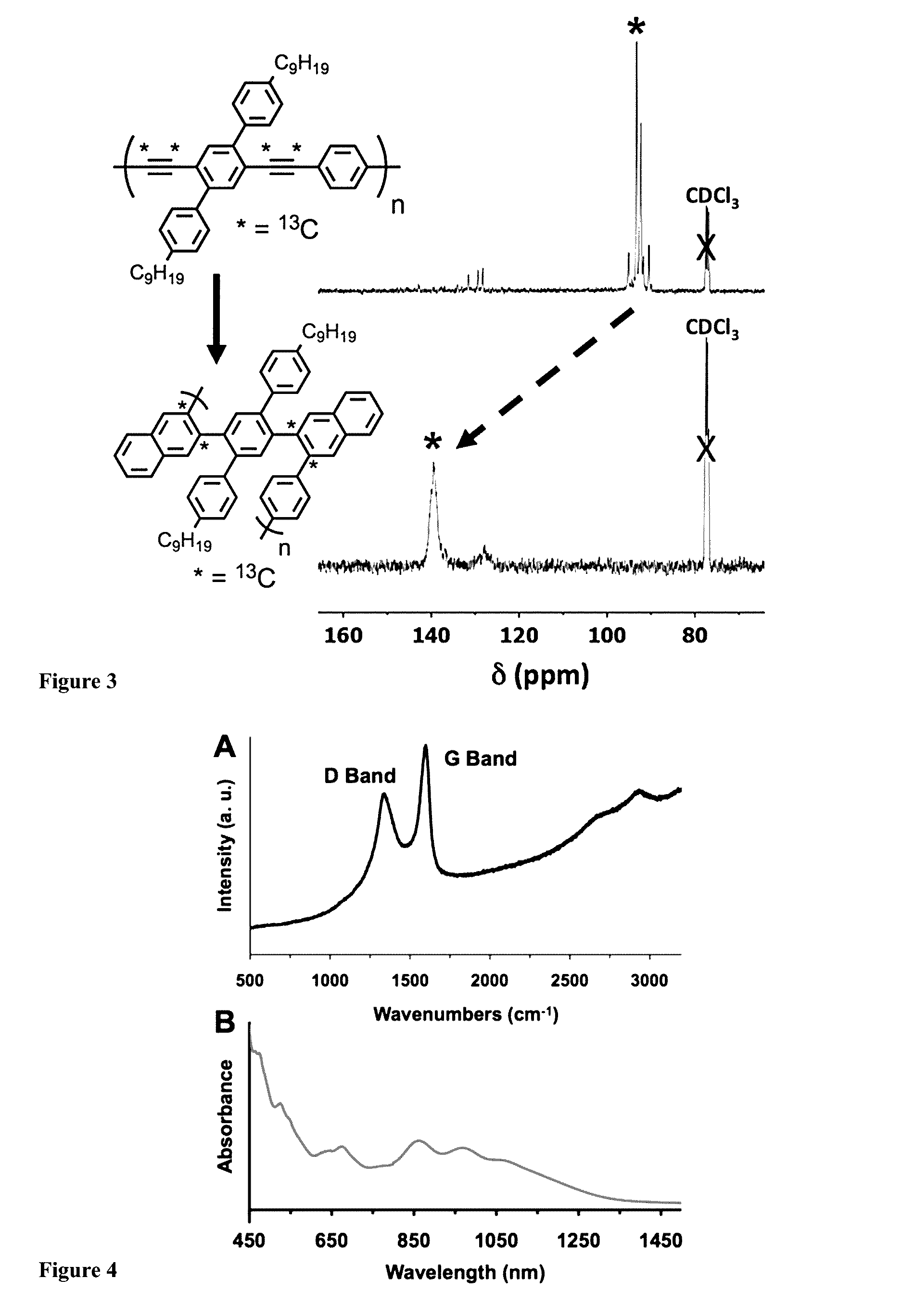Graphene nanoribbons derived from poly(phenylene ethynylene) polymer, methods of making same, and uses thereof
a technology of graphene nanoribbons and polyphenylene ethylene, which is applied in the field of graphene nanoribbons and methods of making gnrs, can solve the problems of not simultaneously controlling the width, edge structure, or pendant functionality of the ribbon, and all methods failing to control the atomic structure of the edges of the gnrs, so as to achieve high value-added gnr materials
- Summary
- Abstract
- Description
- Claims
- Application Information
AI Technical Summary
Benefits of technology
Problems solved by technology
Method used
Image
Examples
example 1
[0063]An example of GNR preparation by a method of the present invention.
[0064]Materials. All reagents were purchased from commercial sources and used without further purification. CH2Cl2, PhMe, and MeOH were purchased from commercial sources and purified using a custom-built alumina-column based solvent purification system. Other solvents were purchased from commercial sources and used without further purification
[0065]Instrumentation. Infrared spectra were recorded on a Thermo Nicolet iS10 with a diamond ATR attachment and are uncorrected. Ultraviolet / visible / near infrared absorbance spectra were recorded on a Cary 5000 spectrophotometer with a Hg lamp. A quartz cuvette rated for transparency in the near infrared region containing the pure solvent of interest for the measurement was used for background correction.
[0066]Photoemission and excitation spectra were recorded on a Horiba Jobin Yvon Fluorolog-3 fluorescence spectrophotometer equipped with a 450 W Xe lamp, double excitatio...
example 2
[0105]An example of GNR preparation by a method of the present invention.
[0106]Methods Summary. Benzannulation of PPE 1: PPE 1 (0.180 g) was sonicated in CHCl3 (10 mL) until finely dispersed. The solution was heated to just below boiling to dissolve the remaining polymer and sparged with N2 for 20 min Cu(OTf)2 (11 mg, 0.030 mmol), 2 (366 mg, 1.78 mmol), CF3CO2H (0.14 mL, 1.8 mmol) were added. The reaction vessel was protected with a blast shield, sealed and heated to 100° C. for 11 h, and finally cooled to rt. The reaction mixture was poured into aqueous NaHCO3 (saturated, 75 mL) and extracted with CH2Cl2 (3×50 mL). The combined organic layers were dried (MgSO4), filtered and the solvent was evaporated. The crude product was dissolved in a minimum amount of CH2Cl2 and precipitated into a large excess of acetone (200 mL) stirring vigorously. The precipitate was collected by centrifugation and subjected to Soxhlet extraction in acetone for 24 h to afford polyphenylene 3 (147 mg, 61% y...
PUM
| Property | Measurement | Unit |
|---|---|---|
| length | aaaaa | aaaaa |
| width | aaaaa | aaaaa |
| band gaps | aaaaa | aaaaa |
Abstract
Description
Claims
Application Information
 Login to View More
Login to View More - R&D
- Intellectual Property
- Life Sciences
- Materials
- Tech Scout
- Unparalleled Data Quality
- Higher Quality Content
- 60% Fewer Hallucinations
Browse by: Latest US Patents, China's latest patents, Technical Efficacy Thesaurus, Application Domain, Technology Topic, Popular Technical Reports.
© 2025 PatSnap. All rights reserved.Legal|Privacy policy|Modern Slavery Act Transparency Statement|Sitemap|About US| Contact US: help@patsnap.com



